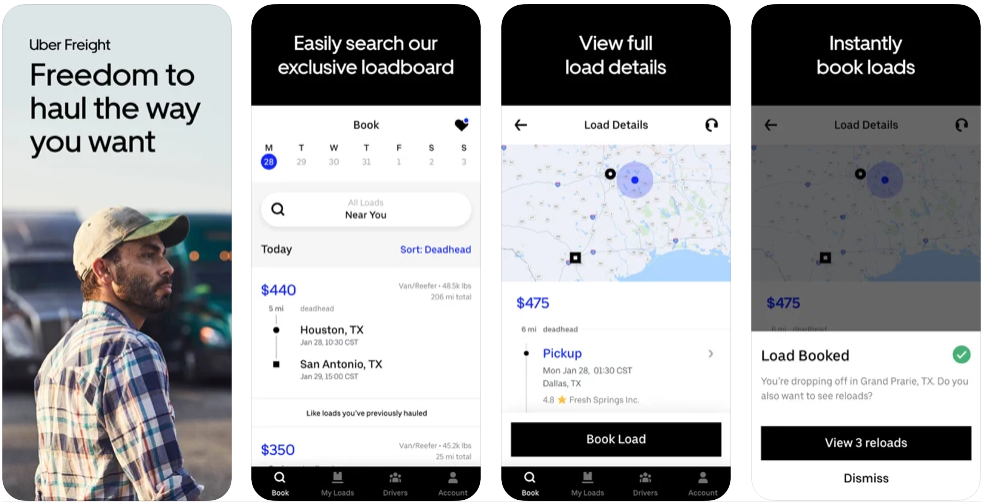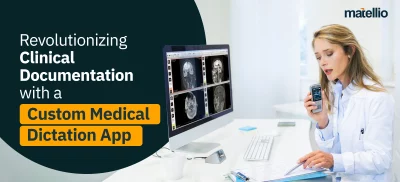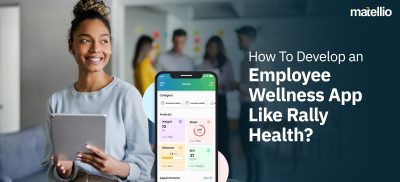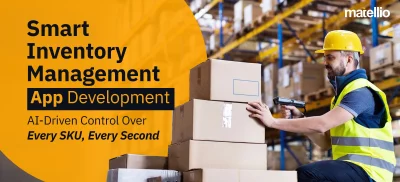
It’s fascinating how many things you can do with your smartphones and computers in this modern age. For example, you can book a cab within a few seconds, order a pizza, buy groceries and even book a truck for your logistics needs, all thanks to the evolving technologies.
Uber was already fulfilling the need for food delivery services, and now it delivers the service of on-demand trucking to its massive user base. It can be said that the logistics market has been uberized. Uber freight has set a result-oriented model that everyone wants to replicate and enhance their user base and the revenue figures. It has kicked out the middlemen brokers in the business of trucking, making it more profitable and feasible for the users.
Uber trucking app development is beneficial for both shippers, and the drivers as shippers now have the freedom to send their freight anytime they want, and logistics firms can earn some extra bucks in the process. The market for uber like app for trucks is on the rise, and users appreciate this concept. The market revenue of this is genre is significant, and various entrepreneurs are initiating their uber trucking app development. In this blog, we will know about the features and the cost of the development of an Uber freight clone.
What is Uber Freight?

Image Source
Uber Freight can be described as Uber for trucks. It delivers the transparency needed for business owners to decide their next move and make correct decisions. The app offers world-class 24×7 support with a streamlined workflow to keep the shipment moving. Uber is known for the revolution it has brought in the way people move, and in the same way, it is streamlining the logistics industry. If you are a shopper, you can get an instant quotation for your shipment and get it delivered to your target destination. This efficient mode of transportation guarantees successful delivery of shipment while saving time and money. At present, Uber freight has more than 50,000 shippers that are ready to deliver your product. It is considered to be one of the most efficient apps to manage the crucial supply chain of any business.
Uber freight was introduced in the year 2016, and since then, it has generated a massive amount of 288 million US dollars in one year of establishment. The growth rate has increased to over 43 percent. The stats show the popularity and interest of users in the Uber trucking app.
How Uber Freight Works?
Uber Freight is setting new milestones every day in the field of logistics. The working of Uber freight is extremely simple and easy to understand. Its working is similar to the uber taxi app in numerous ways, except it is used for shipment. There are two user interfaces in the app, one is for the carriers/drivers, and the other one is for the shippers. The former one is responsible for delivery and transportation, and the latter one is responsible for giving the orders to a destination to ship their items.
In case you are a shopper, you can search in the app for a truck that meets your shipment requirements and book it after finalizing a few mandatory procedures. The next step involves carriers confirm your bookings that meet your requirements and deliver transportation services accordingly. Uber freight has a state-of-the-art payment function that delivers feasibility to the shippers and the carriers to exchange financials right through the app. The rest of the process is similar to any delivery app; after the shipment arrives at its asked destination, the shipper pays the generated amount to the carrier, and Uber like app for trucks takes its commission on each transaction. Many entrepreneurs are interested in developing a uber freight clone as it has everything a business wants to flourish. The market stats never lie, and the stats of this particular logistics concept is skyrocketing high.
The market size of Trucking App Development
Uber has a great market reputation, and it can be seen in the numbers of users and the revenue figures of the company. The trucking market experienced a huge spike in terms of revenue and usage in times of pandemic as the whole world scrambled for the supply of essential goods such as food, medicines, etc. Despite the challenges, the freight market is growing at a CAGR of ten percent, as forecasted by a report of market and markets. The freight market was valued at 94.76 billion US dollars in the year 2020 and is expected to surpass the figure of 156.45 billion US dollars by the year 2025.
Global trade is never going to slow down, and the need to control time-in-transit is going to increase every year. There is a massive need for advanced security methods, intelligent transportation solutions, and communications. All of these needs are being fulfilled with the advancement in communication technology like IoT and machine learning. Industries all over the world are leaning towards the technology solutions that deliver them feasibility to track, trace, secure, and control their in-transit shipments.
Uber freight app has recorded year-over-year growth of 43 percent with a revenue figure of 288 million US dollars. It has also recorded a forty-five percent increase in the number of active shippers on the platform. Uber has increased the load bundling in its freight platform to a hundred percent that led to a twenty-two percent decrease in the numbers of empty and non-revenue trucks. It also introduced the option to book load separately to the drivers that allows them to book the load and reloads together instead of booking each load distinctively. These innovative measures make a freight company grow in a competitive market. Now you know about the market growth and future stats of the uber trucking app development, let’s look at the features that make such uber like app for trucks successful.
Top Features of an Uber Freight Clone
Functional and alluring features are the main attraction of any app development. Whether your app delivers food or shipment, it should have ergonomic features that should attract customers. Each feature needs a different tech stack and has different functionality. You can always ask your mobile app development company to integrate the features in your app that meet your expectations and fulfill its purpose as well. Uber freight app consists of three main interfaces, the shipper, the carrier, and the administrators who manage the show. The features for each profile are different and perform different functions.
1. Driver/Carrier Side Features
Driver Registration: The driver or carrier should be able to create a profile that should include every necessary detail about them or their vehicle. This section should have a form that should ask them about their details along with their photograph and their vehicle details such as registration, the expiration date of driver’s license, commercial permits, etc.
Orders List: The drivers should be aware of the orders they have assigned to them. It is considered a mandatory feature in the field of trucking. This feature should display the state of the shipment and its requirements. Sometimes the orders are fragile, and drivers can adjust their journey accordingly if they are informed beforehand.
Accept/Decline Orders: A driver is not always available to carry a shipment. That’s where this feature comes in handy. With this functionality, the drivers would be able to accept or decline the booking as per the availability of the space in their vehicle. Sometimes the vehicle can experience break-downs, and the driver should be able to decline the order.
Order Search: Disputes are common in any industry, and the freight industry is no different. The feature allows the drivers to search for any particular order they have transported. You should add an advanced filter in this feature that should speed up the process and allow drivers to search for any order by adding parameters like date, item type, location, distance, etc.
Order Details: The drivers should be able to contact the shipper in case of any updates. The order details feature should convey to the drivers about the contact details of the shipper and the nature of the shipment, such as its weight, destination, type, etc.
Smart Payments: Your uber like app for the truck should have a feature for efficient payments. This feature should allow the drivers to collect payments after the delivery of the shipment. It should be able to calculate the total amount with any deduction or addition. You should integrate the best payment gateways for seamless operation.
Efficient Maps: Maps are the lifelines of any driver in the trucking business. They should be aware of their location and the next pit stop in their route. The integrated GPS-based map should be able to notify the drivers of any upcoming motels, eateries, and fuel stations.
Digital Documentation: Driver should have a feature that allows them to upload or download any bill of loading and unloading. The documentation in the trucking business is diverse, and a dedicated section with a built-in scanner would deliver ease of access to the drivers associated with your platform.
Real-Time Notifications: While driving, a driver should be notified of the upcoming eatery or motel. Drivers should be notified in real-time about any upcoming order to ease up the process. Notifications of any kind are beneficial in the transportation business, and you should integrate this feature in your uber trucking app development process.
2. Shipper Side Features
Shipper Registration: Users who are sending their shipment are known as shippers, and they should be able to add their profile on your Uber freight clone. They can save their address, personal information, etc. Make sure to make this process as simple as possible. You don’t want your customers to deal with a hectic profile creation process.
Order Placing: Shippers on your app should be able to place orders and find the available vehicles for transportation. For feasibility, you should ask some information about the shipment such as weight, size, destination, pickup and drop-off location, date of delivery, etc. Along with booking orders, this section should display the users of various offers that are running on the platform; they should be able to view the estimated delivery time, pricing, contact information of drivers, etc.
Online Documentation: This feature is mandatory for both the drivers and the shippers. It can be possible that the shipment is big in size and it requires a transport permit. Hence, documents should be uploaded for smooth transportation. Please ensure to integrate a built-in scanner to scan the documents in the app.
Payment Gateway: A diligent payment is necessary to pay the driver after the delivery right through the app. However, you can allow your users to pay via other methods, but a built-in payment gateway will be handy in collecting your fee as a company.
Real-Time Order Tracking: A shipper is always concerned about the package, whether it got delivered or not on time. Your uber like app for trucks should have an integrated map with the real-time location of the driver of the vehicle. This feature will help you in building extremely good customer relations.
3. Admin Panel Features
Advanced Security: A transportation app has a variety of sensitive data, and users are always concerned about their data security. You should implement two-factor authentication to prevent any data breaches and unauthorized access to your app.
Dashboard: The admin panel dashboard should be detailed as they want to keep an eye on everything that is happening on the app. It should consist of the list of upcoming orders, current orders displayed by location on the map, completed deliveries, etc.
Carrier Queries: A big operation always have a fair share of queries; your app should also have a large share of queries along with a list of new drivers that aspire to join your firm. This section will deal with queries of all kinds.
Advanced Matching Algorithm: A successful trucking app should have an advanced matching algorithm that would match the shippers to the carriers as per their similar requirements. This algorithm will analyze a match based on various factors such as location, freight details, etc.
Proficient Billing: The most important part of any service-based business is billing and invoicing. Admins should have a feature of billing that allows them to approve or reject the billing generated either by shippers or carriers.
Trip Log Reports: The admins should have the exact data of all the trips that have been conducted through your platform. This feature will allow them to get an exact estimate of total trips covered on your platform, including start and dates, miles covered, number of fulfilled orders, etc.
Apart from these generic features, you should also include some advanced features in your platform to make an impact and stand out from the crowd. Here are some of the features that you should consider.
- Built-in messaging
- Real-time traffic analytics
- Weather updates
- Fuel prices map
- Built-in calendar
4. Factors Affecting the Development Cost of Uber Freight Clone
Cost is a volatile factor in any development process. It keeps fluctuating based on the number of factors that are involved in the making of an app. Here are some of the factors that will affect the cost of your uber trucking app development.
Technology Stack: Tech stack is the backbone of any app. The type of tech stack you choose will determine the operational capability of the app. If you want your Uber like app for trucks to be extremely fast and sturdy, you will go for a high-end tech stack along with various APIs; the cost will rise up. On the other hand, a lower-tech stack will be less costly, but it may not fulfill your expectations from the app.
Number of Features: To make your app attractive in terms of functionality, it is only logical to add a list of features in your app. Remember, the number of features is directly proportional to the development of your Uber trucking app. It is recommended to integrate the generic features first and then move towards the advanced or premium features. It will give you an estimate of how much money you are spending on integrating features in your app.
Choice of Development Partner: The most crucial component of the development process is a reliable development partner. You can either hire a freelance development team that will cost you less, but they generally don’t deliver the desired quality and maintenance. On the other hand, a full-fledged mobile app development company will deliver you the exact app straight from your expectations with extreme functionality. There are companies that offer feasible hiring models that will suit your varying needs.
Number of Platforms: You can develop your app either on iOS or Android or on both, depending on your budget. However, it is a known fact that not everyone uses the same smartphone or computer. Hence, you can either develop your app only for iOS users or Android users. Development on a single platform will cost less than developing on both platforms. The development cost will also depend upon the location where you are getting your app developed, as various regions have different costs of development.
Final Takeaway
Uber freight clone’s demand is on the rise since the pandemic and is going to increase coherently. The logistics market offers a ton of opportunities along with a massive userbase. There are tons of trucking apps available in the market; still, they lack some of the essential features and functionality that you can deliver. There is plenty of room for a new Uber like app for trucks.
Matellio can help you in developing your Uber freight clone with our highly skilled team of developers. Our team of proficient engineers is well-rehearsed in all the latest technologies and has delivered several trucking apps like Uber freight with great ratings and excellent feedback from our clients and their customers. Discuss your idea with our experts, fill in the form!
Disclaimer: Please note that the content of this blog including links, texts, images, and graphics is only meant for informational purposes. We do not intend to infringe any copyright policy or do not possess any third-party material. If you have issues related to any of our content or images, kindly drop your message at info@matellio.com





